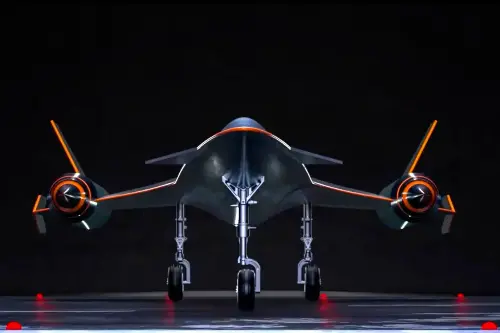
A Chinese aerospace firm has completed the first test flight of a passenger plane that it claims can fly at Mach 4 – more than twice the speed of Concorde.
Beijing-based Space Transportation, also known as Lingkong Tianxing Technology, said the prototype of its Yunxing plane conducted a successful outing over the weekend ahead of further engine tests in November.
The first full-scale supersonic passenger jet is expected to perform its maiden flight in 2027, according to the South China Morning Post, who first reported the test flight.
If successful, the Chinese-built craft could become the first supersonic airliner to fly passengers in nearly a quarter of a century, with Concorde completing its final flight in 2003.
Travelling at speeds of 5,000kph (3,000mph), the new plane could potentially fly between London and New York in 1.5 hours. The fastest transatlantic crossing for a Concorde was 2 hours and 53 minutes, while standard airliners take around eght hours.
Space Transportation is one of several companies attempting to reignite commercial supersonic air travel.
US-based Venus Aerospace is currently developing a jet engine that it claims could go as fast as Mach 6 and “make the hypersonic economy a reality”.
SpaceX and Tesla boss Elon Musk has also expressed his interest in building a supersonic jet, though is not in the process of developing one due to his workload.
The billionaire – who also runs the social media app X, neurotech startup Neuralink and tunnel-digging venture The Boring Company – suggested a vertical take-off and landing (VTOL) craft could be built that uses electricity rather than fossil fuels.
“I’m so dying to do a supersonic, electric VOTL [sic] jet, but adding more work will make my brain explode,” Mr Musk tweeted in 2021, building on comments he had previously made on the Joe Rogan podcast.
“The interesting thing about an electric plane is that you want to go as high as possible but you need a certain energy density in the battery pack because you have to overcome gravitational potential energy,” he said.
“The higher you go, the faster you will go for the same amount of energy. And at a certain altitude you can go supersonic with less energy-per-mile – quite a lot less energy per mile – than aircraft at 35,000 feet.”
© Independent Digital News & Media Ltd